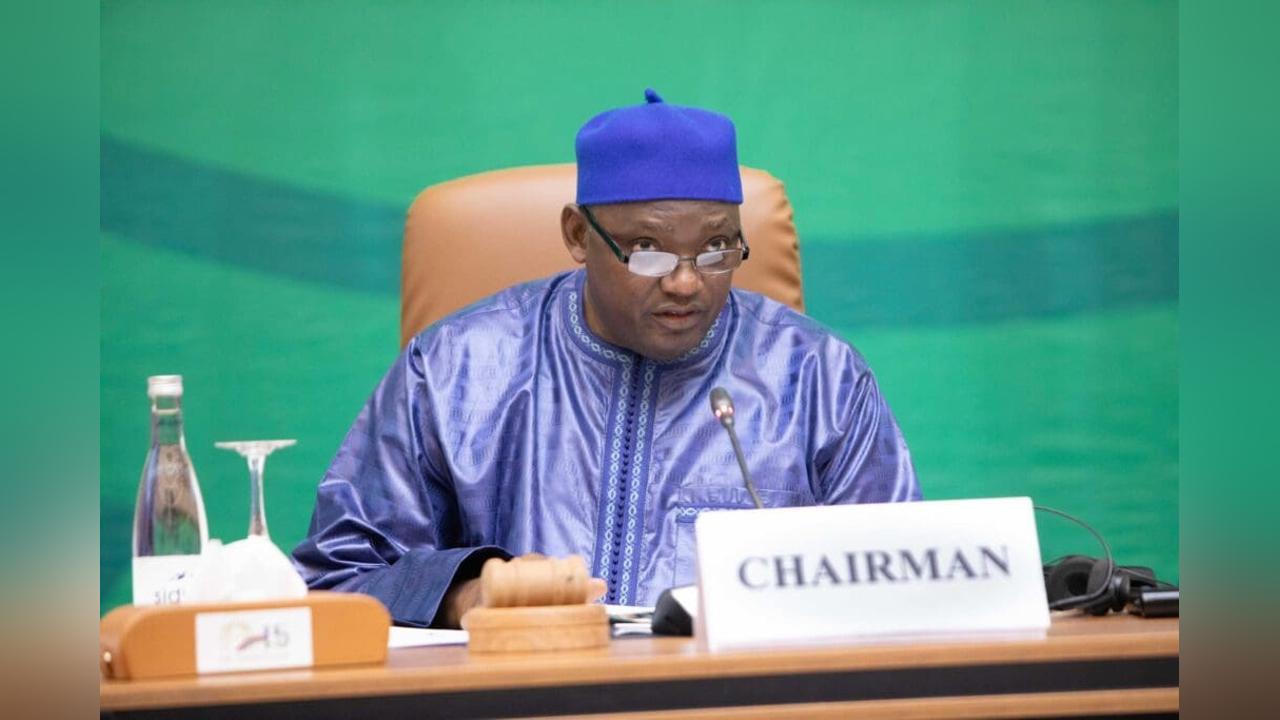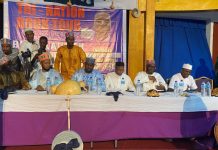Africa-Press – Gambia. Honouring the Legacy of Gambian Journalism:
For a start, I would like to express my gratitude to the journalism and journalistic skills of some of our most well-read and articulate journalists of our time: Saul Njie of Radio Gambia, the late Swaebou Conateh, the late Dixon Colley—who used to carry his papers, sell them himself, and travel on public transport, entirely in touch with community struggles—Bora Mboge with his soft voice, the late Malick Jeng with his eloquent English broadcasts. The late Deyda Hydra, a victim of dictatorship, and Pape Saine are just a few. Where is our school of journalism today? Where are the new writers attempting to follow in their footsteps?
Where are the Foroyaa stalwarts, Halifa Sallah and Sedia Jatta, whose version of socialism has never been fully grasped by many Gambians? In my view, PDOIS continues to avoid mainstream politics. Their leftist vision struggles to penetrate the political core of The Gambia. Yet, Foroyaa remains a consistent voice for journalistic integrity and freedom of expression.
The decline of a once-disciplined civil service:
What became of our most disciplined and strategically oriented civil service, once the nation’s pride? It was dismantled first by the dictatorship and then buried under President Barrow’s nepotism. People were placed in key positions without the required qualifications or experience. Without vision or strategy, institutions fail. Chronic underinvestment has led to economic decline and visible system collapse.
Tesito—the patriotic self-help spirit encouraged by Sir Dawda Jawara—was abandoned. Public service became a gateway to personal wealth. Checks and balances disappeared. Public finance was treated as quick money to be looted before regimes changed. Greed, selfishness, moral decay, and a lack of empathy replaced national values.
Disappearing micro economies and public assets:
Where are the thriving micro-economies of the 1970s and 1980s?
– Gambia Public Transport Corporation: Dead.
– Gambia Utilities Corporation (GUC): Dead.
Sarro/Denton Bridge Oil Production Mill: Dead. Once a 24-hour operation employing youth, producing healthy cooking oil, and protecting the nation’s health, it is now gone.
– National Trading Corporation (NTC): Dead.
– Cotton mill in Basse: Dead.
– Jahal Pacharr rice fields: Dead, despite millions spent on agricultural projects.
The Education System Undone:
Where are our notable high schools and technical institutions?
– Gambia High School
– St Augustine’s High School
– St Joseph’s High School
– Armitage High School
– Sukuta Technical Secondary School (under Mrs. Elizabeth Renner)
– Crab Island Technical School (under the late Kama Badgie)
– Latrikunda Technical Secondary School- to name a few.
Our education system was tampered with under a dictatorship. Curricula were overhauled, quality deteriorated, and private schools mushroomed without regulation. Today’s educational deficiencies stem from those changes.
The forgotten infrastructure and livelihoods where is Lady Wright, the riverboat connecting Banjul and Basse? Grounded. Armitage students and travellers from across the regions once relied on her. It was full of life. Now, it is a forgotten relic, and with it went livelihoods and economic activity.
Where is the Public Works Department (PWD) in Banjul? Once a hub for vehicle repair, road maintenance, and skilled employment, it also died under a dictatorship. Imagine the savings from in-house government vehicle servicing, now replaced by exorbitant private charges.
Militarisation, dictatorship, and the field force:
Where is the Gambia Field Force? Once enough for our internal security. Instead, the dictatorship created an army to protect its paranoia. TRRC has unveiled the horrors—killings, tortures, and abuses. The army became an instrument of fear, not safety. We must never forget the trauma of dictatorship.
Foreign Military Presence and Political Sovereignty:
ECOMIG’s continued presence on our soil is an insult. Parliament must declare its overstaying unjustified. We are not free if foreign soldiers determine our security. The very freedom Senegalese leaders fought for is what their troops helped suppress in The Gambia.
Corruption and Economic Disintegration:
Where are the architects of the First Republic? Can we not learn from their vision? Reinstate government-run school feeding programmes. Finance them from national revenues, not foreign donors.
Greedy, selfish leaders have hijacked democracy and hope. Corruption remains the dominant theme in critiques of dictatorship and the Barrow administration. Look at the dalasi: in the 1980s, £1 equalled 5 dalasis. In 2025, it’s nearing 100 dalasis.
We had firm foreign reserves under Jawara. Under dictatorship, they were looted. Will we ever know how much was stolen?
Youth and the Future:
How many youth secured stable jobs under the dictatorship or Barrow? How many dropped out due to poverty, drugs, “backway” journeys? How many died at sea chasing false hope?
The Royal Victoria Hospital, renamed EFSTH, is now a hollow shell. Once national health needs are met, morale, medicine, and hope will go bankrupt today.
Human Capital and Brain Drain:
Brain drain continues—our brightest minds now work abroad. Yet our remittances sustain the country. Still, we in the diaspora remain marginalised.
Why can’t Gambians at home and abroad unite? Hold virtual conferences. Draft economic and judicial strategies. Restore hope. Provide a social safety net for the poor, the sick, and the vulnerable.
A call to action
1. Rebuild essential micro‐industries and public utilities.
2. Design social policies that protect the sick, the poor, and the vulnerable.
3. Confront corruption with real checks and balances.
Our nation runs on an empty stomach, parched for water and justice. Yet with collective will, we can restore the pride, prosperity, and compassion that once defined The Gambia.
For More News And Analysis About Gambia Follow Africa-Press






